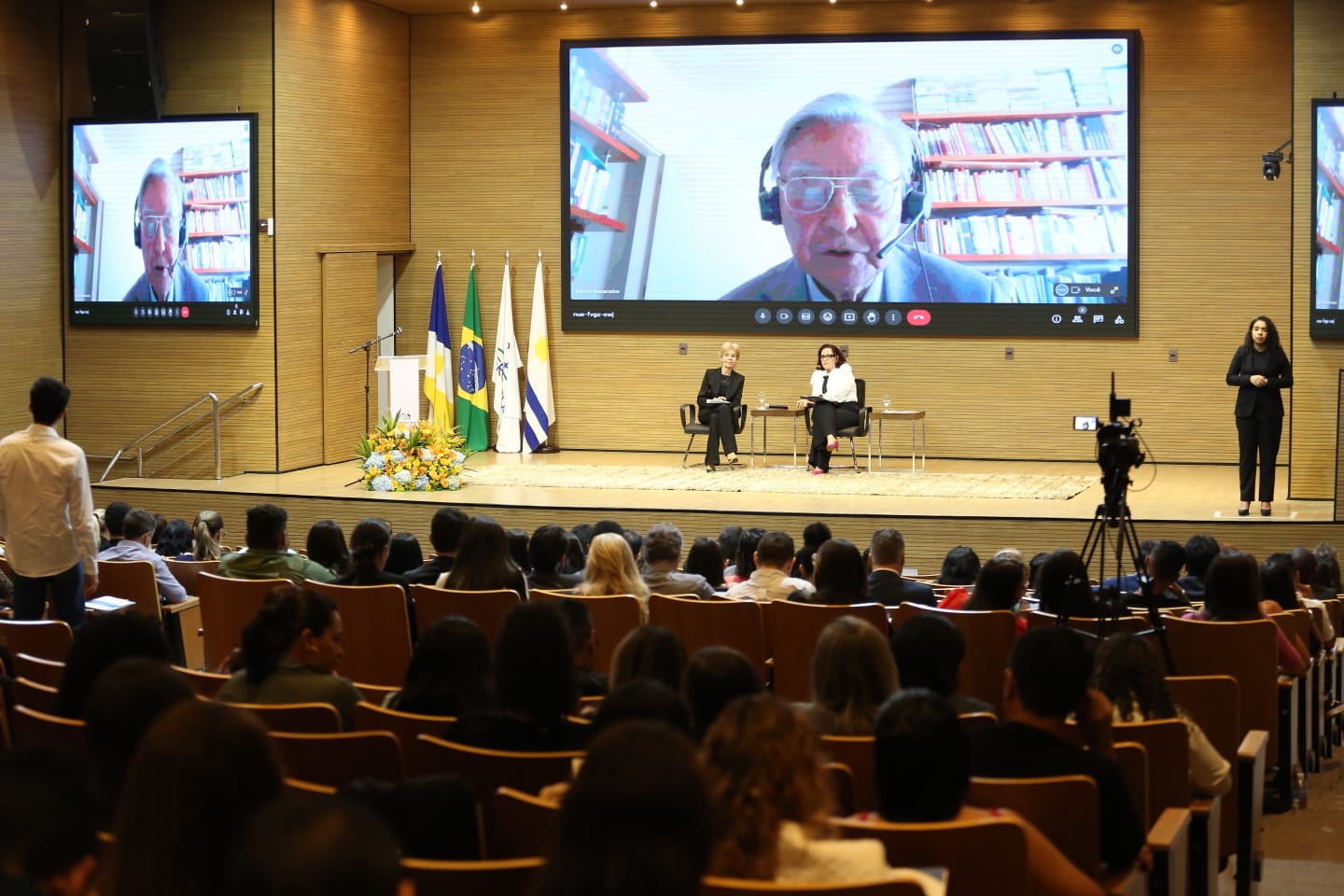
“Although there are many difficulties, the efforts of Judges, courts and CNJ have enabled great advances”, said Justice Kazuo Watanabe, from the Court of Justice of the State of São Paulo, when speaking about the relevance of the policy of adequate treatment of conflicts and the importance of the Judicial Centers for Conflict Resolution (Cejuscs) for the access to a fair legal order, during the opening virtual speech of the 6th Seminar on Public Policies for Adequate Treatment of Conflicts and 7th Meeting of (Cejuscs). The events are being held this Friday (March 17th), in the auditorium of the Court of Justice of the State of Tocantins (TJTO).
After making some considerations about access to a fair legal order, the Justice spoke about the evolution of access to justice in Brazil, citing landmarks such as the law that instituted the Small Claims Court, the Public Civil Action Law, and the Consumer Defense Code.
For the speaker, this access of citizens to the services that make it possible to solve their problems has been reaching a very good dimension recently, although there is still resistance from institutions and people still bound to the traditional conception of access to justice.
TJTO
“I see that the Court of Justice of the State of Tocantins has given full implementation to this public policy instituted by Resolution 125 of the National Council of Justice”, he highlighted, referring to the resolution that instituted the National Judiciary Policy for adequate treatment of conflicts of interest. At the time, he also mentioned the work of legal professionals in general, which, according to Watanabe, has enabled great advances in this area. “Access to Justice in Brazil is starting to move towards access to a fair legal order, although there are still many topics to be overcome,” he emphasized.
However, as he mentioned, the permanent monitoring of the CNJ, the training of an increasing number of mediators and conciliators, and the enthusiasm of Judges and public servers, mediators and conciliators that work in this area demonstrate that this public policy has been established in a definitive way in Brazil.
This year it marks the 13th anniversary of the Judicial Policy instituted by the CNJ. “It is not yet fully completed, but data from Justice in Numbers reveal that we have about 1.3 thousand Cejuscs installed in the country and that the rate of procedural solutions has been increasing,” said the speaker.
“It is important that the basic pillars of the judicial policy are rigorously maintained and permanently improved,” he recalled, adding that the goal is to ensure access to fair judicial policy.
Treatment of Conflicts
When talking about proper handling of conflicts, the speaker cited two perspectives that he considers important: the one that considers conflicts by parties with a view to a more adequate organization for the justice system, especially the Judiciary; and the one that considers conflicts of individualized interests and are seeking a proper solution through another body of the public or private justice system.
In relation to the first perspective, he said that the Judiciary must be impartial in the solution of conflicts, in individualized interests, but not neutral or passive in relation to conflicts that involve society with regard to their treatment in the macro perspective.
The table of the first lecture was coordinated by the president of TJTO, Justice Etelvina Maria Sampaio Felipe, and by Judge Silvana Parfieniuk.




